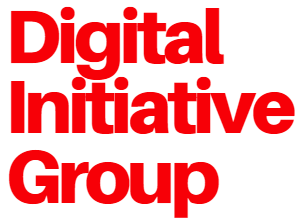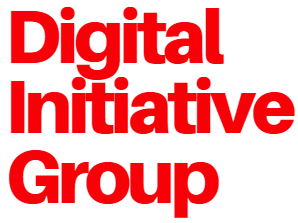상세 컨텐츠
본문
Piper Jaffray에서 주체한 Global Internet Summit 내용을 토대로 인터넷 트렌드를 분석한 내용이다.
1) Online Advertising - The Big Winner. The participants were generally highly optimistic on the growth of online advertising, both in the near term (2006) as well as longer term. The consensus belief is that migration of dollars from TV and mass marketing to online will significantly accelerate in the coming years, with the change in media planning and advertising that experts foresee for the industry.
2) Changing Traditional Media and Telecom Models. Beyond the migration to online marketing, the traditional media companies are likely to undergo major shifts in their business models, with the current conglomerates, as well as the telecom "gate keepers" likely to lose their power. Not only might the era of mass marketing and controlled content distribution be over, but the new model that is evolving is highly personalized and does not allow amassing of distribution power. User-generated content will play a significant role in the media world over the next ten years.
3) Emergence of Mobile Media as the Next Big Opportunity. The mobile segment was another big winner among the participants, as reflected in a Summit poll we conducted. Participants generally agreed that mobile devices will play a major role in consumption of high-bandwidth media, including music and video, in the future. Many consumers, especially younger segments of the population, will rely heavily on their mobile devices for peer-to-peer as well as group and other interactions. Advertisers and marketers will need to focus on this medium.
4) Google's Brand Strength and Dominance in Search was evident throughout most sessions, in particular during the search and the youth focus group panels where all participants equated searching with "googling." In addition to strong brand loyalty, Google's reputation was also very positive among our focus group, with most believing that Google is set to do good and not focused on profits.
5) Uncertain Future for Music Industry. Our takeaway from music discussions as well as the focus groups' reaction to music sales was that the industry is likely to go through major changes-changes that the labels appear to be still resisting. The teen panel focus group clearly showed that the youth do not consider paying for music a "natural act." To them, music is for sharing. The current economics of the music industry is likely to change and with that the distribution powers will shift. While Real Networks and Napster presented strong arguments for their cometitive advantages and solid position within the digital music industry, most participants believed that Apple, Yahoo, and similar networks are likely to dominate the online music distribution market.
6) Development of New Web Communities. The rapid growth of blogging, social networking and networks such as MySpace suggest the unfolding of major new trends that will pose new challenges and opportunities to marketers. Affinity marketing, auction based listings, and other approaches may offer significant growth potential, especially as the trends listed in item 2 above unfold.
7) Consolidation Environment with Increasing M&A Activities. Participants and especially the industry experts agreed that there is an increasing desire from major consolidators, particularly offline media companies, to acquire online assets. The recent pattern of acquisitions such as Shopping.com, Shopzilla, About.com and others were considered a growing pattern.
8) Limited Upside Potential for Pure eCommerce Players. Participants consider the eCommerce sector as becoming very competitive while approaching higher levels of saturation. Most participants believe that in this environment the biggest winners will be search and other intermediaries, such as shopping comparison engines. Offline merchants have had major gains while the infrastructure and technology cost advantages of the pure e-tailers is rapidly eroding.
9) Vertical Search Gaining. Vertical search engines were viewed positively by the participants, with most believing that search will become more specialized. Growth of new models such as travel and shopping search, as well as newer ones that presented at the Summit, such as Indeed, were viewed as having good potential.
10) Spyware, Viruses Could Slow Ad Spending. Panelists and participants believe that the growing "fear factor" in using the web, including spyware programs, viruses and others, could undermine legitimate use of personalization and behavioral targeting methods and slow the growth of online advertising. Industry alliances against use of spyware and other invasive tools are needed. One such organization, Safecount.org, is focused on this task.
출처:The Silk Road Newsletter
1) Online Advertising - The Big Winner. The participants were generally highly optimistic on the growth of online advertising, both in the near term (2006) as well as longer term. The consensus belief is that migration of dollars from TV and mass marketing to online will significantly accelerate in the coming years, with the change in media planning and advertising that experts foresee for the industry.
2) Changing Traditional Media and Telecom Models. Beyond the migration to online marketing, the traditional media companies are likely to undergo major shifts in their business models, with the current conglomerates, as well as the telecom "gate keepers" likely to lose their power. Not only might the era of mass marketing and controlled content distribution be over, but the new model that is evolving is highly personalized and does not allow amassing of distribution power. User-generated content will play a significant role in the media world over the next ten years.
3) Emergence of Mobile Media as the Next Big Opportunity. The mobile segment was another big winner among the participants, as reflected in a Summit poll we conducted. Participants generally agreed that mobile devices will play a major role in consumption of high-bandwidth media, including music and video, in the future. Many consumers, especially younger segments of the population, will rely heavily on their mobile devices for peer-to-peer as well as group and other interactions. Advertisers and marketers will need to focus on this medium.
4) Google's Brand Strength and Dominance in Search was evident throughout most sessions, in particular during the search and the youth focus group panels where all participants equated searching with "googling." In addition to strong brand loyalty, Google's reputation was also very positive among our focus group, with most believing that Google is set to do good and not focused on profits.
5) Uncertain Future for Music Industry. Our takeaway from music discussions as well as the focus groups' reaction to music sales was that the industry is likely to go through major changes-changes that the labels appear to be still resisting. The teen panel focus group clearly showed that the youth do not consider paying for music a "natural act." To them, music is for sharing. The current economics of the music industry is likely to change and with that the distribution powers will shift. While Real Networks and Napster presented strong arguments for their cometitive advantages and solid position within the digital music industry, most participants believed that Apple, Yahoo, and similar networks are likely to dominate the online music distribution market.
6) Development of New Web Communities. The rapid growth of blogging, social networking and networks such as MySpace suggest the unfolding of major new trends that will pose new challenges and opportunities to marketers. Affinity marketing, auction based listings, and other approaches may offer significant growth potential, especially as the trends listed in item 2 above unfold.
7) Consolidation Environment with Increasing M&A Activities. Participants and especially the industry experts agreed that there is an increasing desire from major consolidators, particularly offline media companies, to acquire online assets. The recent pattern of acquisitions such as Shopping.com, Shopzilla, About.com and others were considered a growing pattern.
8) Limited Upside Potential for Pure eCommerce Players. Participants consider the eCommerce sector as becoming very competitive while approaching higher levels of saturation. Most participants believe that in this environment the biggest winners will be search and other intermediaries, such as shopping comparison engines. Offline merchants have had major gains while the infrastructure and technology cost advantages of the pure e-tailers is rapidly eroding.
9) Vertical Search Gaining. Vertical search engines were viewed positively by the participants, with most believing that search will become more specialized. Growth of new models such as travel and shopping search, as well as newer ones that presented at the Summit, such as Indeed, were viewed as having good potential.
10) Spyware, Viruses Could Slow Ad Spending. Panelists and participants believe that the growing "fear factor" in using the web, including spyware programs, viruses and others, could undermine legitimate use of personalization and behavioral targeting methods and slow the growth of online advertising. Industry alliances against use of spyware and other invasive tools are needed. One such organization, Safecount.org, is focused on this task.
출처:The Silk Road Newsletter
'디지털마케팅 > 인터넷마케팅' 카테고리의 다른 글
| 일본 2005년 상반기의 e-비즈니스 중요 키워드 (0) | 2005.07.11 |
|---|---|
| 커뮤니티 가드너와 시삽 (0) | 2005.07.07 |
| Cause Marketing 검색엔진 (1) | 2005.06.22 |
| Digital Music Marketplace (0) | 2005.06.07 |
| 구글의 개인화 검색방식 (2) | 2005.04.22 |







댓글 영역